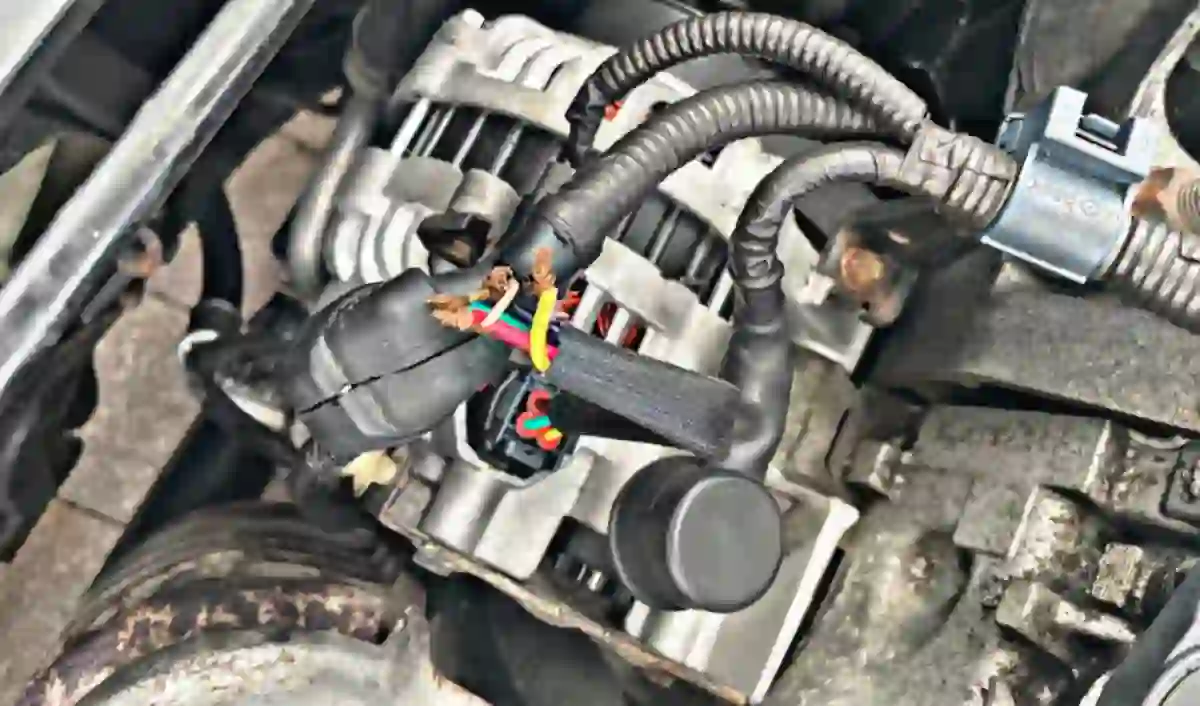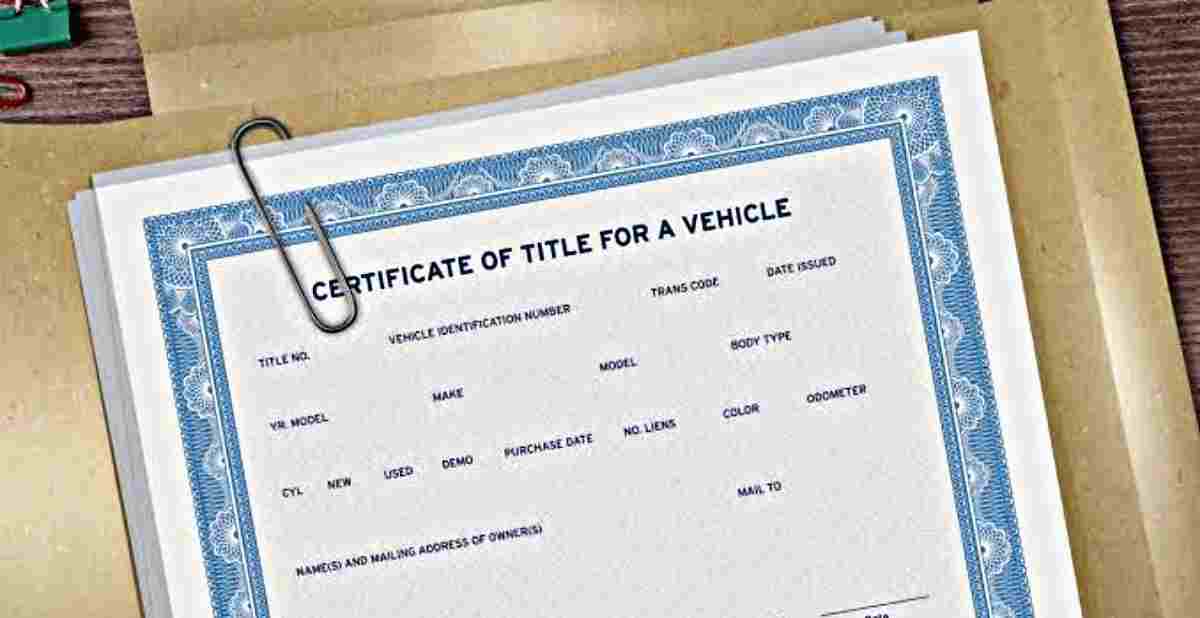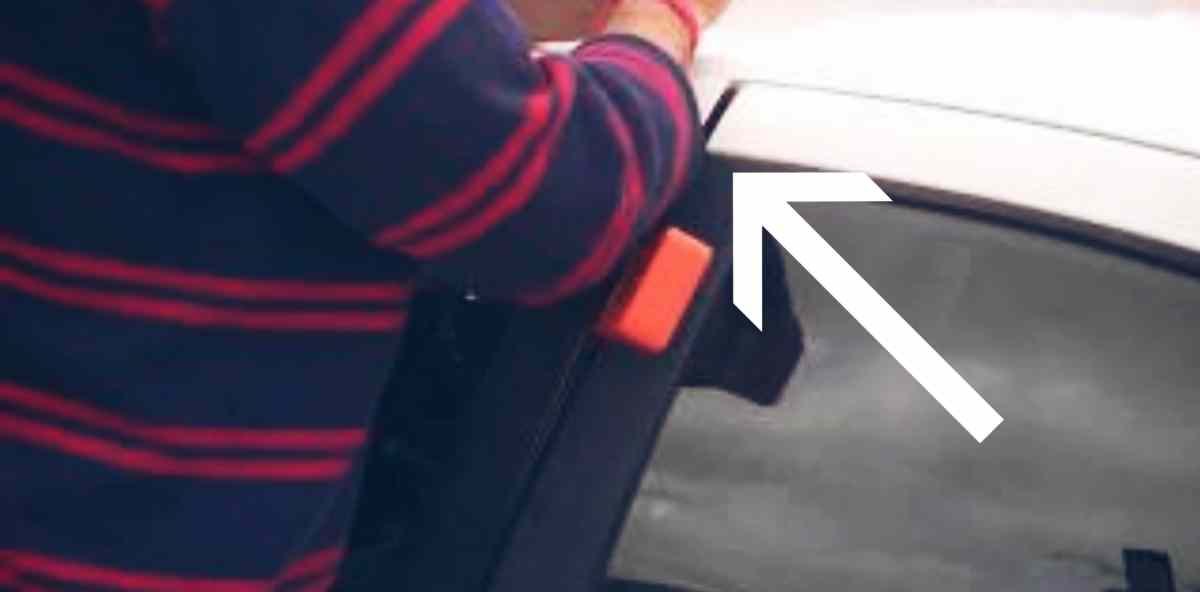Someone sold me a car with a lien on it, what should I do? Allow this post to explain. There is nothing worse than being in this kind of sticky situation just because you unknowingly bought a car with a lien on it. Sucks, I mean why would anyone scam you like that? I know right. But the real question is “What do you do in a situation like that?” This article is here to ease your worries and get you out of this issue by telling you just what to do when someone sells you a car with a lien on it.
So come along…
Someone Sold Me a Car with a Lien on It: What Does It Mean?

If someone sold you a car with a lien on it, it means that someone else has a legal claim on the car. The lienholder, which could be a bank, the IRS, or a mechanic’s shop, has the right to the car’s title. Essentially, they own the car until the lien is paid off. You can’t sell the car without the lienholder’s signature, and usually, they want the full payment of the lien before they’ll sign it over.
It is illegal to sell a car with an active lien without telling the buyer about it. If you do sell a car with a lien without disclosing it, the buyer can take legal action against you when they find out.
Also, most liens not only attach to the car but also to the person who owns it. So selling the car with a lien doesn’t get you out of making the payments.
Why is There a Lien on My Car?
| Loan | When a car is bought with a loan, the lender places a lien on the car until the loan is fully paid off. |
| Unpaid Taxes | If the owner owes money to the government in the form of unpaid income taxes or property taxes, a lien may be placed on the car to collect the owed amount. |
| Unpaid Bills | Service providers may file a lien on a car if the owner fails to pay for repairs or maintenance work done on the vehicle. |
| Parking Tickets and Traffic Fines | Accumulating unpaid parking tickets or traffic fines can lead to the government or authorities placing a lien on the car to ensure payment. |
| Unpaid Child Support | If the owner owes child support payments and has fallen behind on them, the custodial parent or child support agency can place a lien on the car to enforce payment. |
| Court Judgment | If the owner loses a lawsuit and is ordered by the court to pay a certain amount, the winning party can place a lien on the car to ensure they receive their payment. |
| Unpaid Loans or Debts | If the owner defaults on a loan or owes money to a creditor, the creditor may take legal action and place a lien on the car as a means to compel payment. |
Bought A Car With A Lien On The Title? Here’s What To Do.
Now, if you bought a car with a lien on the title, there are steps you can take to get a clear title in your name.
If you have the title, contact the lender printed on the front.
If you have the title, you should contact the lender mentioned on the front of the title.
Find out their contact information, and send them a certified mail request for a lien release and a letter saying you have no interest in the lien. Pretend to be the registered owner when contacting the lienholder because that’s illegal.
If you do not have the title and you know the prior owner, contact them to obtain a lien release.
If you can get the registered owner’s help, it will make the process easier. If they can obtain a lien release or letter of non-interest, they can apply for a new title without the lienholder and then sign it over to you.
If you do not have the title and you do not know the prior owner, contact your local DMV office.
If you don’t have the title or can’t contact the prior owner, you can try contacting your local DMV office. They can provide guidance or help you locate the prior owner. However, it can be challenging to remove the lien without the knowledge of the registered owner, lienholder, or the original title.
Keep in mind that in most jurisdictions, it is illegal to sell a vehicle with a lien on the title. If the title has a lien, this means the vehicle is technically owned by the bank or lender, not the individual owner.
A lien is only removed once the loan is paid back in full or released willingly by the lender. If it’s not your lien, don’t get stuck with it on your vehicle title.
What Can I Do if I Bought a Car from the Dealership and It Has a Lien on the Title?
When you purchase a vehicle from a legitimate car dealer, it’s against the law for them to sell it without a clear title. Dealerships are required to clear any liens before selling the vehicle. As a buyer, you should receive a title free from any liens.
If you’re financing the purchase with a loan, your lender will also require a clear title and hold it until your loan is paid off.
In the unlikely situation where you’re given a title with an existing, unreleased lien, the dealership must either refund your full purchase price immediately or find another satisfactory solution.
What Does It Mean if a Carfax Report Shows a Lien on a Vehicle?
If a Carfax report shows a lien on a vehicle, it means that someone has used the car’s title as collateral for a loan. This is something you should investigate further. If there is indeed a lien, you won’t be able to transfer the title into your name or anyone else’s until the lien is taken care of. The lienholder must provide a notice stating that the lien has been satisfied for the title to be released.
Now, Carfax reports are not completely accurate or comprehensive. They can only report information that has been reported to their database. Errors can occur, impacting a vehicle’s value. If you have proof of inaccuracies, you can work on correcting them, but it may take time.
Experts typically use Carfax as a guide when I am looking over a pre-owned vehicles history. It helps me ask specific questions about a pre-owned vehicle’s history if there’s anything concerning listed.
How to Check for Liens on Vehicles
- To check for liens on vehicles, you’ll need the Vehicle Identification Number (VIN), a unique code assigned to each vehicle.
- You can use online services or visit the local Department of Motor Vehicles (DMV) to run a lien search using the VIN.
- Or, you can seek assistance from a professional title search company or consult an attorney specializing in vehicle-related legal matters if you’re unsure about the process.
Can I Sell My Car to Someone and Keep Making the Payments Myself?
Selling your car to someone and continuing to make the payments yourself isn’t the best approach when dealing with a car title lien.
The buyer would have to trust you since they won’t have the actual title to the car; the lienholder does. If anything happens to the car or the buyer engages in illegal activities, you would still be held responsible because legally the car still belongs to you until the lien is paid off.
Research the laws in your area because this type of agreement may not even be legal.
What about an Underwater Car Loan?
If you have a car loan with a high-interest rate, missed payments, or your car’s value has dropped significantly, your loan is considered “underwater” if you owe more than what the car is worth.
This can happen due to damages, high mileage, or other factors that cause the car’s value to decrease. Being underwater makes it difficult to sell the car.
But don’t worry, there are still options to consider. While there’s no instant fix or magic solution, with some effort, you can improve your situation.
- One option is to keep the car and make larger payments to catch up. By doing so, you can eventually reach a point where you’re no longer underwater and then sell the car. Another possibility is to refinance the car loan at a lower interest rate, which can help reduce your payments and make them more manageable.
- If you must sell the underwater car with a lien, going to a dealership might be your best bet. They can use the money you owe as a credit toward a different car, so you’ll be paying off the new car and the remaining debt from the previous vehicle. It’s recommended to choose a low-cost option unless you want to end up in the same situation again. Keep in mind that dealerships can also assist with this process when leasing a new car.
Frequently Asked Questions
What is the right of lien?
The right of lien is the legal right of a person to keep someone else’s goods or securities until certain debts owed to them are paid off. It doesn’t give them the power to sell the property but only allows them to retain it.
How do I remove a lien holder from my car title in New Jersey?
To remove a lien holder from your car title in New Jersey, if you visit a motor vehicle agency, you’ll need to provide either the New Jersey title with the lien endorsed or the New Jersey title with the lien satisfaction letter attached. There’s a fee of $60.
Can someone else sell my car without my permission?
Generally speaking, someone else cannot sell your car without your permission. If a family member or friend is selling your car on your behalf, you may need to give them power of attorney or provide a confirmation letter of intent.
Can an individual put a lien on a car?
Yes, an individual can put a lien on a car. Let’s say someone owes you money, you may be able to file a lien on their car—but the process isn’t always simple.
Final Thoughts — Someone Sold Me a Car with a Lien on It
While it can be frustrating to unknowingly buy a car with a lien on it, you can protect yourself from such a problem, and get out of the ‘situation’ by applying the tips in this article. Lastly, you need to remember the best form of defense is adequate and proper application of knowledge earned.
Read also: How to Put a Lien on a Vehicle


